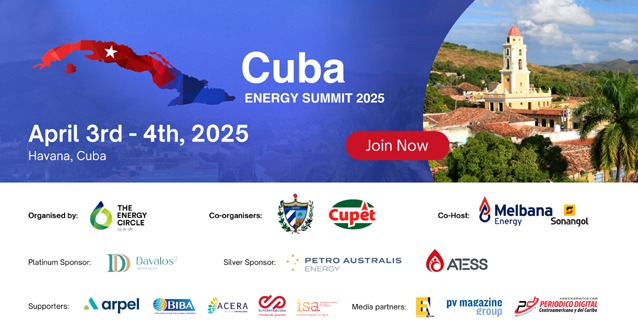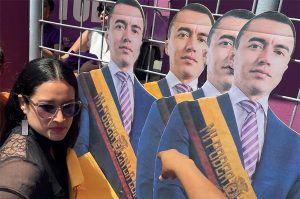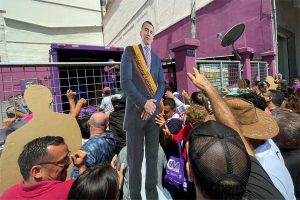
Colombia has received the bulk of the more than 6 million Venezuelan migrants and refugees that have fled their home country in the last several years. More than 2 million Venezuelans now live in Colombia, and the Duque administration introduced a historic, 10-year regularization program for the population last year. However, a new International Crisis Group (ICG) report explores the perils of poor economic inclusion, despite a path to legal residency aimed at integration. Many Venezuelans in Colombia have struggled with poverty and to gain stable, well-paying employment. They also have “no understanding of the unwritten rules for survival,” in conflict zones as they attempt to navigate a country plagued with insecurity and violence despite the 2016 peace accord. As a result, Venezuelans become more vulnerable to recruitment from illicit groups, sometimes through coercion, as well as human trafficking and sexual exploitation, particularly in border regions. Furthermore, xenophobia has grown over time in Colombia, including a criminalization of Venezuelans. This leads to law enforcement turning a blind eye to Venezuelan victims while also being more likely to discriminate and stigmatize.
A meta-analysis report from the Migration Policy Institute last year showed that Venezuelans in Colombia—and elsewhere in South America—consistently remain underemployed, work informally at higher rates, and have weaker access to health care in comparison to the rest of their host communities. Xenophobia and cases of discrimination have also grown over the last five years. However, in Colombia, the authors note that “polling consistently shows that Colombians who have had contact with Venezuelan migrants and refugees are much more likely to have favorable opinions of Venezuelans than those who have not had such interactions.”
ICG writes, “Colombia’s offer of a safe haven for Venezuelans is both a grand gesture of solidarity and a promise the country has been hard pressed to meet. Stronger protection upon migrants’ arrival, clear routes to the formal labour market, restored bilateral ties and a safe way to return home if desired are vital to protecting migrants from the lures and dangers of crime and exploitation, with all the ill effects that those may bring.”
Advocates have worried that the newly inaugurated Petro administration may not continue the Duque administration’s policy of welcome for Venezuelans. This week, a group of 40 civil society and human rights organizations wrote an open letter expressing concern about the plan for voluntary return of Venezuelans, arguing that such a measure would require extensive and inclusive planning and may lead to mass expulsions (Alberto News).

Argentina
- In an effort to combat ever-rising inflation, Argentina’s central bank is considering raising its interest rate to 600 points this week, informs Reuters.
- Argentina is set to create three new scientific research labs in Antarctica, the first part of a “multidisciplinary Antarctic labs” project, reports Ámbito.
Brazil
- Brazilians are increasingly fearful of a return to dictatorship as Bolsonaro trails in polls but steps up his preemptive claims of election fraud, notes The Guardian.
- Bolsonaro may well face the threat of prison should he lose his re-election bid this October, writes Vanessa Barbara for The New York Times, highlighting the Brazilian president’s negligent pandemic response, disinformation campaigns, and corruption allegations.
- Following Monday’s reports on a stalled sale of javelin missiles from the US to Brazil over concerns about Bolsonaro’s attacks against democracy, the State Department has reportedly approved the potential sale, says Reuters.
Chile
- President Boric’s governing coalition is divided over the country’s proposed constitutional rewrite, reports ExAnte.
Colombia
- Newly-elected Gustavo Petro introduced a tax reform bill to Congress that would increase revenue by “hiking income taxes for the wealthiest Colombians, increasing export tariffs on oil and gas, and closing loopholes for tax evaders,” reports Al Jazeera. The tax reform is critical for Petro’s social reform agenda.
- Drug trafficking militia “The Gulf Clan” has called for a ceasefire following Petro’s inauguration, claiming the group’s “expression of goodwill with the new government and its broad willingness to search for paths of peace.” (The Guardian)
Cuba
- “Even if robustly implemented, the measures are at best focusing on the symptoms of the economic crisis, while the short- and long-term real causes remain unaddressed,” writes Ricardo Torres for AULA blog, discussing Cuba’s proposed economic reforms.
- The explosion at Cuba’s largest oil factory last week should prompt further international assistance and temporary relevant sanctions relief as the country continues to respond and recover from the tragedy, writes WOLA.
Guatemala
- In a guest essay for the New York Times, Francisco Goldman highlights Guatemala’s recent propensity to go after journalists and media outlets who expose government corruption.
- As China continues to deepen ties with Latin America and the Caribbean, “It’s in the clear interest of Washington to welcome Guatemala’s continued, recommitted diplomatic engagement with Taiwan,” writes Anthony Kim at the Heritage Foundation.
- A Mexican national linked to the murders of 27 people in “Los Cocos” escaped from prison in Quetzaltenango. Two prison guards are being investigated for their role in the prisoner’s escape, reports La Hora.
Jamaica
- In a call with Jamaican Prime Minister Holness, Vice President Kamala Harris announced that the US “will provide $2 million in support of the creation of a Cyber Center of Excellence to be located in Jamaica for the benefit of the region.” (White House)
Mexico
- “Instead of curbing physical abuse and false arrests, police and city officials have turned a blind eye, current and former police officials say — often leaving victims, many of them poor, with little recourse after enduring violent human rights abuses,” write Steve Fisher and Maria Abi-Habib for the New York Times.
Nicaragua
- Another 100 NGOs were canceled by the Ortega-controlled legislative assembly on Tuesday, bringing the total number of canceled organizations to 1,350 in 2022, reports La Prensa.
Paraguay
- One of the six men involved in the killing of Paraguayan lawyer Marcelo Pecci this May had ties to Colombian drug traffickers. (Infobae, ABC)
St. Kitts & Nevis
- Dr. Terrance Michael Drew won St. Kitts & Nevis’ snap elections last Friday and was sworn in as Prime Minister the following day, according to Caribbean National Weekly.
Arianna Kohan y Jordi Amaral / Latin America Daily Briefing
http://latinamericadailybriefing.blogspot












